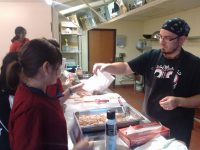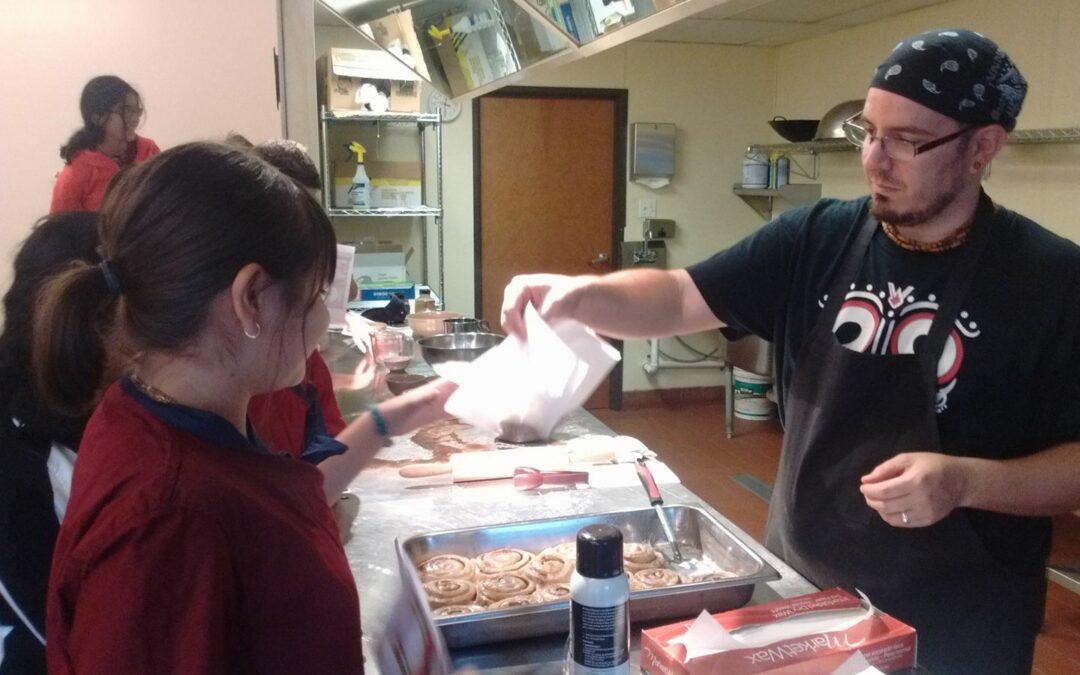TKG students learn cooking from Sri Avirhotra Prabhu.

Cooking with children in schools promotes the lifetime skill of healthy cooking starting at a young age. Introducing cooking in schools has many benefits:
- Children may try new and healthy foods. Recent research published in the Journal of the Academy of Nutrition and Dietetics indicates that children engaged in tactile experiences, such as handling foods, have less food neophobia (food fear) and greater acceptance of eating a variety of foods.
- A kitchen is a learning lab for children that can involve all of their senses. While kneading, tossing, pouring, smelling, cutting, and feeling foods they have fun and learn without being aware of it.
- Children tend to skip less healthy prepared or processed snack foods as they prepare their own food more.
- Recent research indicates that nutrition knowledge may be incomplete without the experiential learning or hands-on activities associated with food preparation that involves handling food and cooking equipment.
- Children learn lifetime skills through practicing basic math skills such as counting, weighing, measuring, tracking time; they also gain social skills by working together and communicating in the kitchen.
- Teaching cooking to youth is an opportunity to teach nutrition education such as planning meals and make smarter food choices.
- Cooking can aid children in acceptance of responsibility. Each child has a task to complete to contribute the meal preparation and cleanup.
- Cooking in schools can build positive memories that promote future healthy, enjoyable cooking elsewhere.


